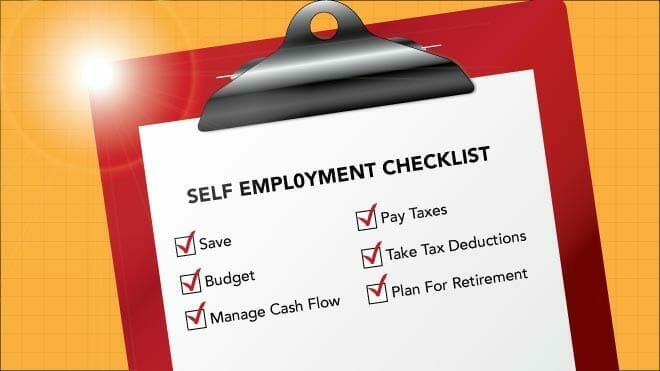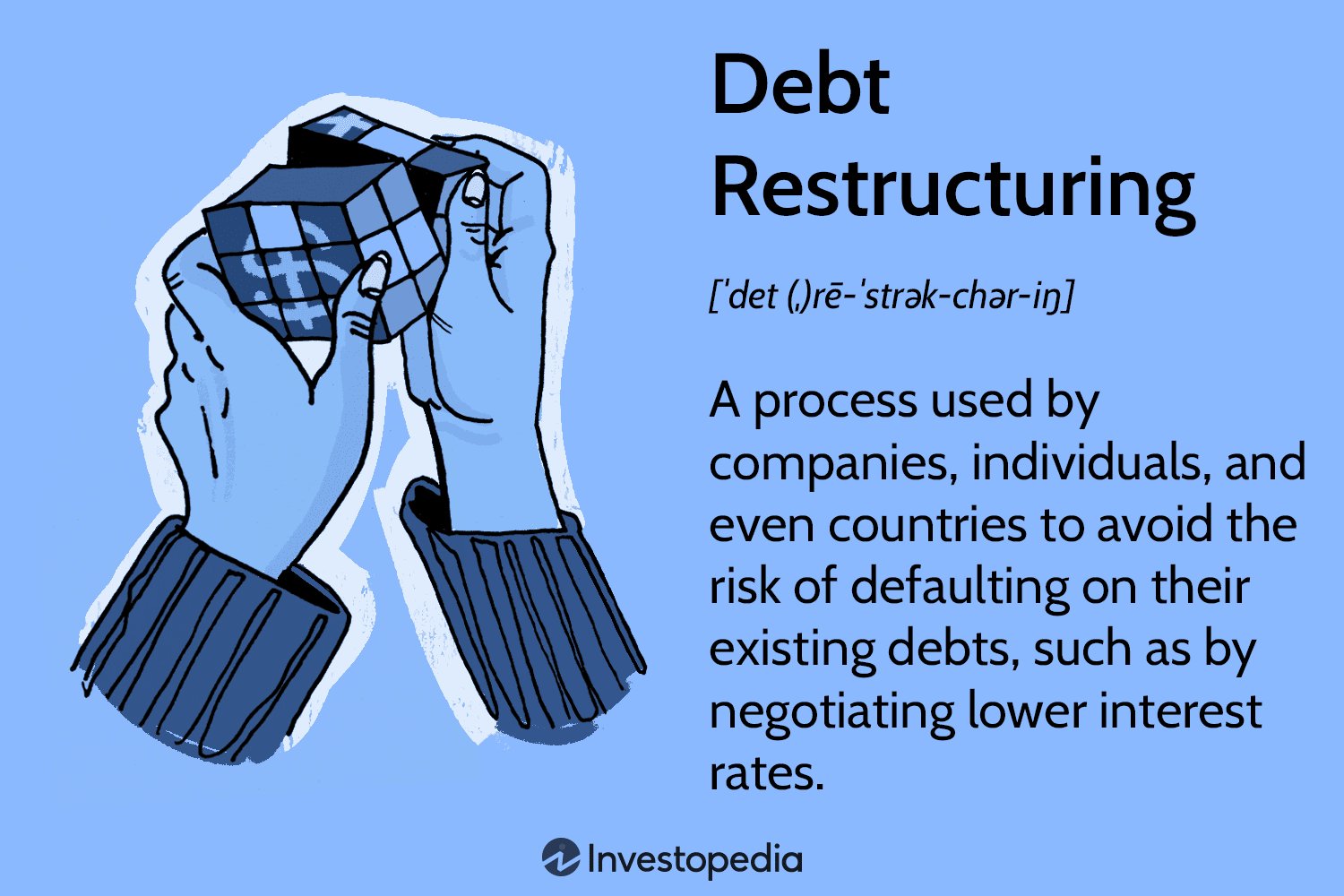If you’re self-employed, you know firsthand the freedom and flexibility that comes with being your own boss. But along with that autonomy comes the responsibility of managing your finances effectively. The good news is, with some simple yet practical tips for financial planning for the self-employed, you can confidently navigate the world of money management and set yourself up for long-term success. So, whether you’re a freelancer, a consultant, or a small business owner, keep reading to discover the essential strategies that will help you stay in control of your financial future.
Tips for Financial Planning for the Self-Employed
Introduction
Being self-employed opens up a world of possibilities, but it also comes with unique financial challenges. Whether you’re a freelancer, consultant, or small business owner, managing your finances effectively is crucial to your success. Financial planning plays a vital role in ensuring a stable and sustainable future for your self-employed venture.
In this article, we will explore valuable tips and strategies for financial planning that can help self-employed individuals make informed decisions, secure their financial well-being, and achieve their long-term goals. From budgeting and taxes to retirement planning and risk management, we’ll cover a wide range of essential topics to empower you in your financial journey.
The Importance of Financial Planning for the Self-Employed
As a self-employed individual, you have unique financial responsibilities and challenges that differ from those of traditional employees. Financial planning helps you gain control over your finances and make informed decisions to support your business growth and personal financial goals. Here’s why financial planning is crucial for self-employed individuals:
- Income Stability: Financial planning allows you to anticipate and manage cash flow, ensuring a stable income stream even during lean periods.
- Expense Management: By carefully monitoring and controlling your expenses, you can maximize profits and effectively allocate resources to essential areas of your business.
- Tax Optimization: Effective financial planning helps you identify tax deductions and credits, minimizing your tax liability and maximizing your after-tax income.
- Savings and Retirement: Planning for the future is crucial, especially when you don’t have the safety net of employer-sponsored retirement plans. Financial planning helps you save strategically for retirement and protect your financial future.
- Business Growth: Proper financial planning helps you allocate resources, make investment decisions, and identify opportunities to grow your business.
- Risk Management: Self-employment often involves inherent risks. Financial planning helps you identify and manage potential risks, such as disability or liability concerns, through appropriate insurance coverage.
Effective Tips for Financial Planning for the Self-Employed
Now that we understand the importance of financial planning for self-employed individuals, let’s dive into some practical tips to help you streamline your financial processes and achieve your goals.
1. Separate Personal and Business Finances
One of the first steps to effective financial planning as a self-employed individual is to separate your personal and business finances. This separation not only simplifies bookkeeping and tax reporting but also provides a clear picture of your business’s finances and profitability. Consider the following steps:
- Open a business bank account: Having a dedicated business bank account helps you track income, expenses, and cash flow related to your self-employment activities.
- Obtain a business credit card: A separate credit card can help you track and manage business expenses more efficiently, while also building credit for your business.
- Keep meticulous records: Maintain clear and organized financial records, including receipts, invoices, and bank statements, to make tax time less stressful and ensure accurate financial reporting.
2. Budgeting for Self-Employed Income and Expenses
Creating and sticking to a budget is essential for all individuals, but it becomes even more critical when you’re self-employed. Without the stability of a regular paycheck, you must plan your income and expenses meticulously. Here are some budgeting tips:
- Estimate your monthly income: Review your past earnings and consider potential future projects to estimate your monthly income. Be conservative to account for fluctuations.
- Identify fixed and variable expenses: Categorize your expenses into fixed (rent, utilities) and variable (marketing, supplies) to understand where your money is going.
- Set aside taxes: Self-employed individuals are responsible for paying quarterly estimated taxes. Calculate your estimated tax liability and set aside funds accordingly.
- Track and control spending: Use accounting software or budgeting apps to track your expenses and ensure you stay within your budget limits.
- Create an emergency fund: Set aside a portion of your income for unexpected expenses or lean periods to provide a safety net for your business and personal finances.
3. Tax Planning and Compliance
Tax planning is an essential aspect of financial planning for the self-employed. Staying compliant with tax regulations and optimizing your tax position can significantly impact your bottom line. Consider the following tax planning tips:
- Understand your tax obligations: Educate yourself about the tax requirements that apply to your self-employment activities, such as self-employment tax and estimated quarterly taxes.
- Keep thorough records: Maintain organized records of all business-related expenses, income, and receipts to support your tax deductions and ensure accurate reporting.
- Consider hiring a tax professional: An experienced tax professional can help you navigate the complexities of self-employed taxes, identify deductions, and ensure compliance with tax laws.
- Maximize deductions: Take advantage of all eligible business expenses and deductions, such as home office deductions, business equipment, and professional development costs.
- Plan for tax payments: Set aside funds throughout the year to cover your tax payments and avoid surprises during tax season.
4. Retirement Planning for the Self-Employed
Preparing for retirement is crucial for everyone, including self-employed individuals who don’t have access to employer-sponsored retirement plans. Here are key strategies for retirement planning as a self-employed individual:
- Open a retirement account: Explore retirement account options such as a Simplified Employee Pension Individual Retirement Account (SEP IRA), a Simple IRA, or a Solo 401(k) to save for retirement and potentially reduce your taxable income.
- Contribute regularly: Establish a consistent contribution schedule to ensure steady progress toward your retirement goals.
- Consider tax advantages: Research the tax advantages and contribution limits of different retirement account options to select the most suitable one for your circumstances.
- Automate contributions: Set up automatic contributions to your retirement account, making saving for retirement a seamless and consistent process.
- Review and adjust periodically: Regularly evaluate your retirement goals, investment performance, and contribution amounts to ensure you stay on track.
5. Risk Management and Insurance
Being self-employed often entails assuming additional risks compared to traditional employment. Managing these risks with adequate insurance coverage is essential for protecting your business and personal assets. Consider the following risk management tips:
- Assess your risks: Identify potential risks associated with your self-employment activities, such as professional liability, property damage, or loss of income.
- Consult an insurance professional: Seek advice from an insurance professional who specializes in serving the needs of self-employed individuals. They can help you assess your insurance needs and find suitable coverage.
- Consider liability insurance: Depending on your industry, you may need professional liability insurance or general liability insurance to protect against claims and lawsuits.
- Protect your income: Explore disability insurance options to safeguard against the loss of income in case of injury or illness that prevents you from working.
- Review and update your coverage: Regularly review your insurance coverage to ensure it aligns with your current business activities and risk profile.
Financial planning is a crucial discipline for self-employed individuals to achieve stability, growth, and long-term success. By implementing these effective tips for financial planning, you can navigate the unique challenges of self-employment with confidence. Remember, financial planning is an ongoing process that requires regular review and adjustment. As you gain experience and understanding, you’ll become better equipped to make informed financial decisions that support both your business and personal goals. Start today and take control of your financial future as a self-employed individual.
5 Tips for Self Employed solopreneurs (new entrepreneur tips)
Frequently Asked Questions
Frequently Asked Questions (FAQs)
1. What are some key financial planning tips for the self-employed?
As a self-employed individual, it’s important to prioritize your financial planning. Here are some key tips to consider:
- Set up a separate business bank account to keep personal and business finances separate.
- Create a budget to track your expenses and set financial goals.
- Save for taxes by setting aside a portion of your income regularly.
- Consider purchasing health insurance and retirement plans to secure your future.
2. How should I handle irregular income as a self-employed person?
Managing irregular income can be challenging, but here are a few strategies:
- Create a cash flow plan by estimating your minimum monthly income and expenses.
- Build an emergency fund to cover your living expenses during lean months.
- Consider diversifying your income sources to mitigate the impact of fluctuations.
- Track your income closely and adjust your budget accordingly.
3. Should I incorporate my self-employed business?
Incorporating your self-employed business can provide several benefits, such as limited liability and potential tax advantages. However, it’s important to consult with a professional, such as an accountant or attorney, to understand the legal and financial implications specific to your situation.
4. How can I ensure I am saving enough for retirement as a self-employed individual?
Retirement planning is crucial, even if you’re self-employed. Here are some steps you can take:
- Open a tax-advantaged retirement account like a Solo 401(k) or a Simplified Employee Pension (SEP) IRA.
- Calculate how much you need to save for retirement and contribute regularly to your retirement account.
- Consider consulting with a financial advisor who specializes in retirement planning for self-employed individuals.
5. How do I handle my self-employed taxes?
Managing taxes as a self-employed individual can be complex, but here are a few pointers:
- Keep accurate records of your income and expenses throughout the year.
- Consider hiring a tax professional or using tax software to ensure you file your taxes correctly.
- Be aware of self-employment tax, estimated tax payments, and potential deductions you may qualify for.
6. Is it important to have insurance coverage when you’re self-employed?
Yes, having insurance coverage is crucial for self-employed individuals. Consider the following:
- Health insurance: Protect yourself from unexpected medical expenses by obtaining suitable health insurance.
- Liability insurance: Depending on your business, liability insurance can provide protection against potential lawsuits.
- Disability insurance: Consider obtaining disability insurance to safeguard your income if you’re unable to work due to a disability.
7. How can I manage my business and personal finances separately?
To manage your business and personal finances separately, follow these actions:
- Open a dedicated business bank account to deposit all business income and pay business expenses.
- Keep detailed records of your business income and expenses.
- Consider using accounting software to track your business finances.
- Avoid mixing personal and business expenses to simplify record-keeping and tax filing.
8. What steps can I take to improve my financial stability as a self-employed individual?
Improving financial stability takes time, but here are some steps you can take:
- Build an emergency fund to cover unexpected expenses.
- Continue learning about personal finance and stay informed about new opportunities.
- Diversify your income sources to create multiple revenue streams.
- Invest in your professional development to enhance your skills and marketability.
Final Thoughts
In conclusion, financial planning for the self-employed can seem daunting, but with the right strategies in place, it can be effectively managed. Start by creating a budget that includes both personal and business expenses, and regularly review and adjust it as needed. Separate your personal and business finances by maintaining separate bank accounts and keeping detailed records. Consider setting up an emergency fund to protect yourself during lean times, and explore insurance options to mitigate risks. Additionally, prioritize saving for retirement by investing in retirement accounts suited for the self-employed. By following these tips for financial planning for the self-employed, you can ensure your financial stability and success.



